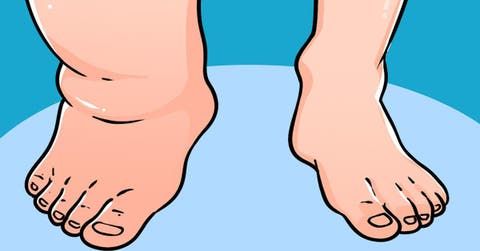Fluid retention can be treated in several ways, but it is always important to consult a healthcare professional for personalized advice. Here are some general tips to reduce water retention:
- Reduce your sodium intake: Sodium can contribute to water retention by causing increased fluid retention in the body. Limit your salt intake by avoiding processed foods and cooking with herbs and spices to season your dishes.
- Drink enough water: It may seem counterintuitive, but drinking more water can actually help reduce water retention. When you are dehydrated, your body can retain more water. Make sure you stay hydrated throughout the day by drinking water regularly.
- Increase your potassium intake: Potassium can help balance sodium levels in your body, which can reduce water retention. Foods rich in potassium include bananas, spinach, sweet potatoes, avocados and beans.
- Avoid sitting or standing for long periods of time: When you remain still for long periods of time, it can cause a buildup of fluid in your legs and feet. Try to get up and stretch regularly if you are sitting for long periods and take walking breaks if you are standing.
- Exercise regularly: Exercise can help stimulate blood and lymph circulation, which can reduce fluid retention. Try incorporating a combination of cardio and muscle-strengthening exercises into your exercise routine.
- Avoid consuming too much caffeine and alcohol: these substances can have a diuretic effect, meaning they increase urine production and can contribute to dehydration, which in turn can worsen fluid retention.
- Elevate your legs: While lying down, elevate your legs by placing pillows under your ankles. This can help reduce swelling and fluid retention in the legs.
These tips can help reduce fluid retention, but if you are experiencing severe or persistent fluid retention, it is important to consult a healthcare professional for an accurate diagnosis and appropriate treatment plan.

